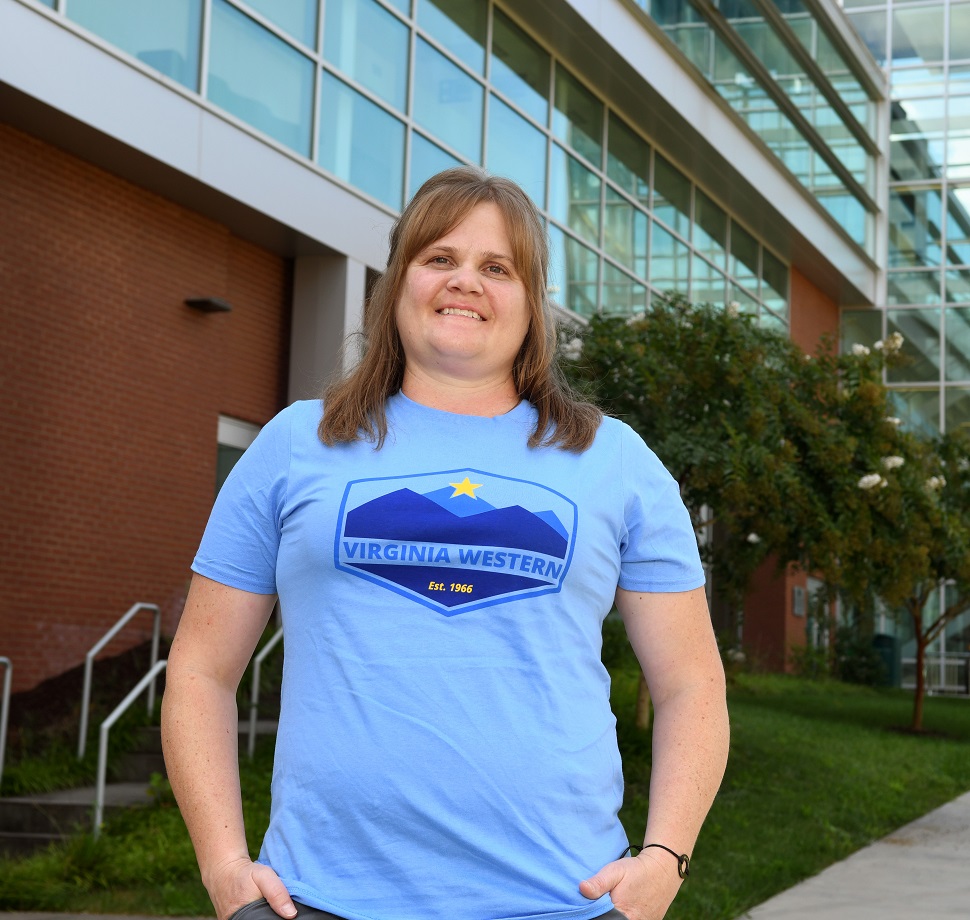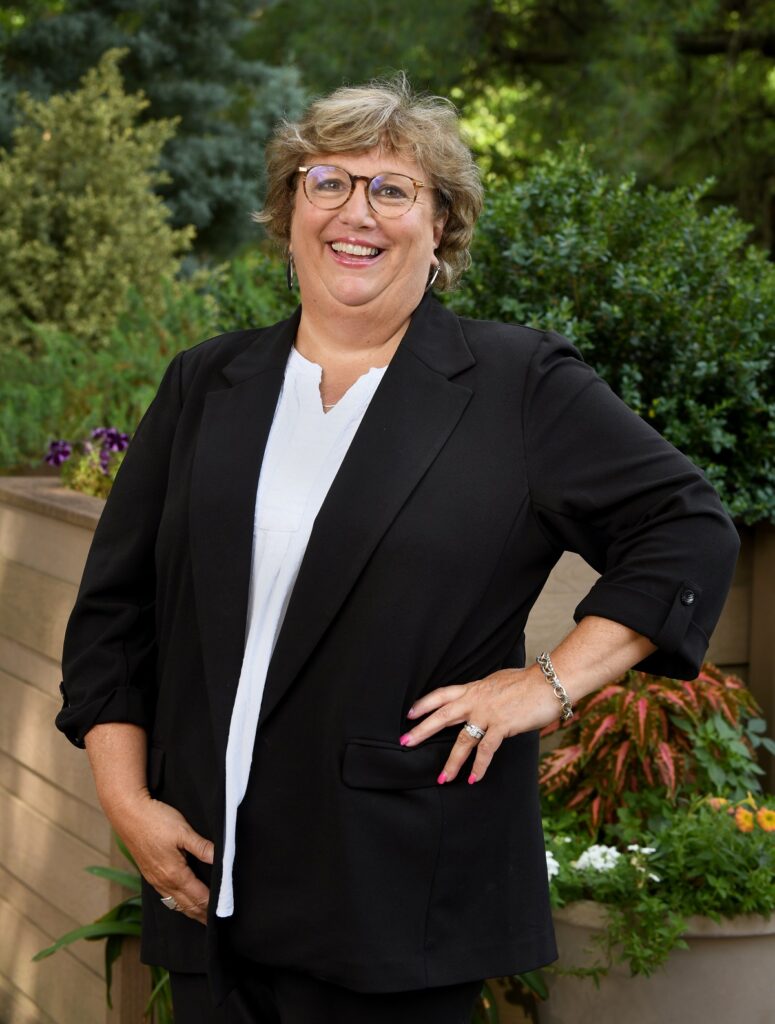Credit for Prior Learning helps nontraditional students accelerate their education with credit for knowledge gained through work and life.
By Karenna Glover
Over her nearly two decades of caring for 3- and 4-year-olds at daycare, Aleasha Phillips hadn’t really considered college. But a few years ago, one of Phillips’ co-workers mentioned that eventually all teachers working with children would need certification. That’s when Phillips started to consider Virginia Western Community College to pursue an education degree.

On one of her visits to campus, she noticed a flyer referencing getting credit for knowledge gained from work and life experience. She thought, “Wow, I have experience — a ton of experience — maybe I should look into this.”
A few weeks later, Phillips contacted Cathy Ferguson, Virginia Western’s Credit for Prior Learning (CPL) Program Specialist, who worked closely with her to create portfolios that would showcase how the knowledge and skills that she had gained from her work experience were equivalent to college-level learning. Her experience working with children was a good fit with certain courses in the early childhood program, making a degree obtainable for Phillips.
She enrolled in fall 2021 and took one class per semester. Her work experience has provided her enough credit for 12 credit hours, or four classes. Phillips completed her Career Studies Certificate in Early Childhood Development last summer, and is considering pursuing an associate degree in early childhood education because of CPL.
“It’s helped me get through classes a lot quicker, and I know I couldn’t have done it so fast while working full time,” Phillips said. “Not only that, but CPL has also probably saved me at least $3,500 in tuition, fees, books and gas.”
Breaking down barriers
Ferguson began the development of the CPL program just over two years ago after the College received the Get REAL (Refocusing Education on Adult Learners) grant. This five-year, $1.8 million grant is from the U.S. Department of Education to develop and support educational pathways to help adult learners, especially those from low-income circumstances. The Educational Foundation also supported the College’s new CPL program with two $5,000 Innovation Grants that helped develop the professional portfolio review, funding professional development training and materials for faculty and staff regarding the program, as well as marketing materials promoting CPL to students.
Nontraditional learners, identified as those age 24 and older, either never enrolled in college or took some classes but never finished their degree. Many are already in the workforce, but employment opportunities for them are often more limited because they don’t have a degree, or certifications or licenses required to acquire or advance in certain positions.

“There are a plethora of barriers that adult learners face, but they’re usually more invested in their education,” said Ferguson. “The goal is to break down the barriers and let them know that we value the learning they bring in and to validate them and the work they’ve done.”
The concept of Credit for Prior Learning originated after World Wars I and II to connect skills acquired by soldiers to employment opportunities. Today, the program is most effective for military veterans, adults seeking certain certifications and licensures, and technical education programs. If a student is interested in obtaining credits for prior learning, they work closely with Ferguson to identify which courses they want to challenge and determine which method of assessment is the best fit. This could be a portfolio, challenge exam, certification or one of several other methods. Advising can even begin before students apply for admission.
For Phillips, justifying the credit for each course has required a significant amount of effort. She — with Ferguson’s guidance — had to assemble a portfolio capturing her shorter-term and long-term education and employment goals, as well as a resume, and documentation of relevant skills acquired on the job and through conferences she’s attended.
“She (Ferguson) has been my lifeline through all of this, and I don’t know if I could have done it without the help she has given me,” Phillips shared.
Not starting at zero
Ferguson said the portfolio process is a way to assemble all the evidence of work-equivalent experience, including a resume, narrative of competencies and any additional on-the-job trainings or learnings. Portfolios are then presented to portfolio evaluators (who are subject-matter experts in the field, such as professors and program heads) to determine if the learning is equivalent to college-level learning and if the outcomes of the course have been met. If so, she said, they are awarded credit. However, 25 percent of their credits must come from courses they take at Virginia Western to meet the residency requirement.
Developing a portfolio is very extensive and writing-intensive. Dedication and determination are necessary to pursue this type of credit, according to Ferguson. “It’s a way of validating their work experience and knowledge and showing the equivalency to college-level learning. If they receive credit, it will help save the student time and money by not having to repeat learning they already have achieved,” she said. “That way these students aren’t starting at zero; they are being awarded credit for work that is the equivalent to college-level learning.”
Understanding options
CPL isn’t a good fit for all degrees and programs. It is best suited for more technical education paths such as mechatronics, criminal justice, early childhood development, business and technical education programs. Many four-year degree programs do not accept transfer of CPL credits, so Virginia Western encourages students who want to continue to obtain their bachelor’s degree to talk with that transfer institution to understand its policy regarding CPL.
For Phillips, having her certificate in early childhood development, which she completed in summer 2023, allows her to grow in her current job. It also provides her with more credentials if she ever decides to pursue another career path, such as being a teacher’s aide in an elementary school or teaching elementary art.
“For some people, going to college is like going to high school. But for me, it’s been a long time since I’ve been in school, so it was a little scary at first — but also something I’m really proud of,” she said.
For more information on Credit for Prior Learning at Virginia Western, go to virginiawestern.edu/get-started/cpl/
(This story was published in the Winter 2024 edition of Impact magazine, a publication of the Virginia Western Community College Educational Foundation.)





